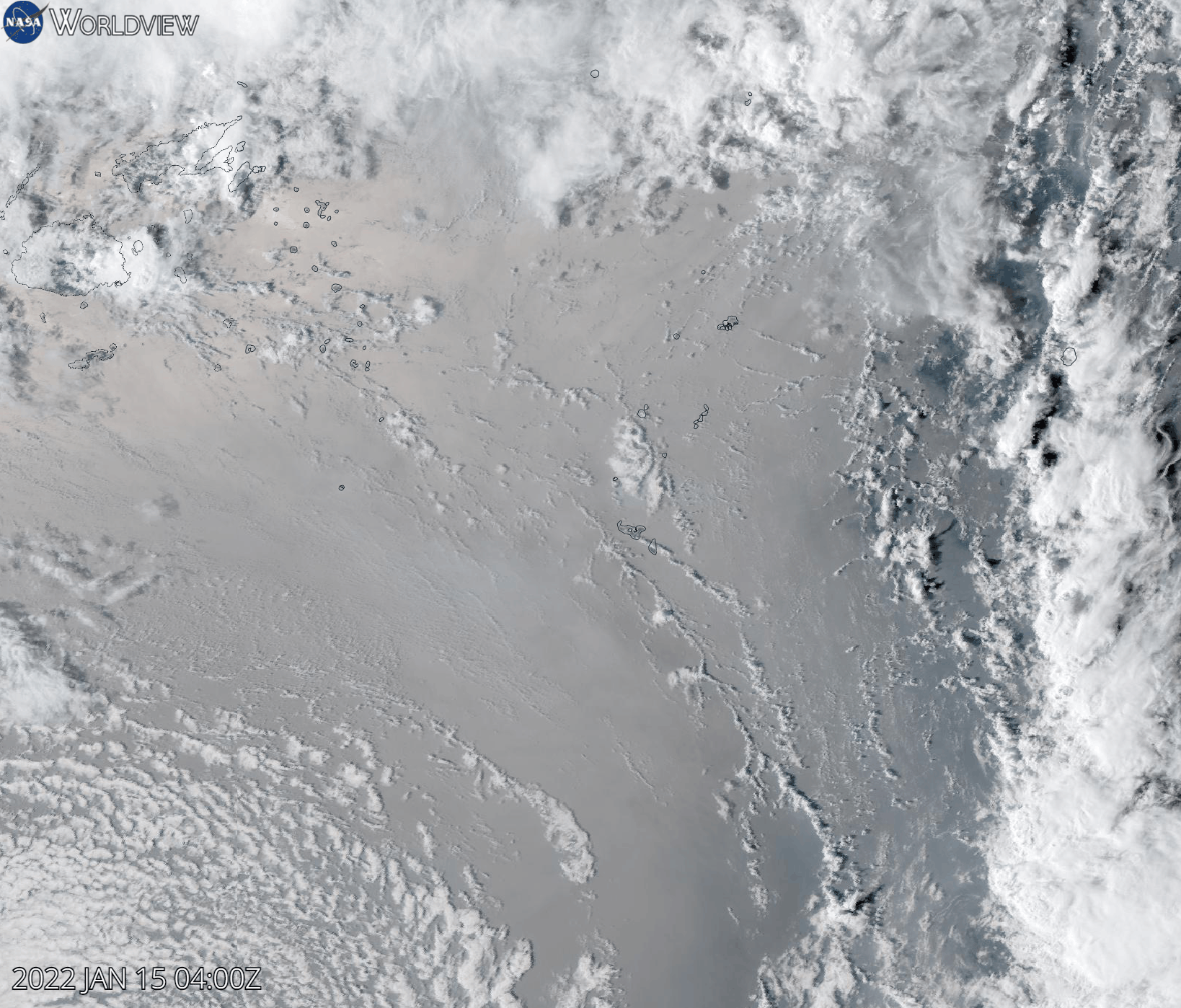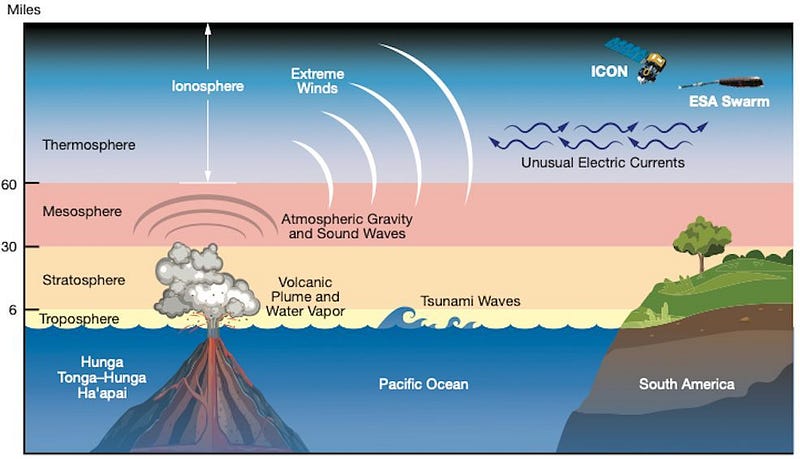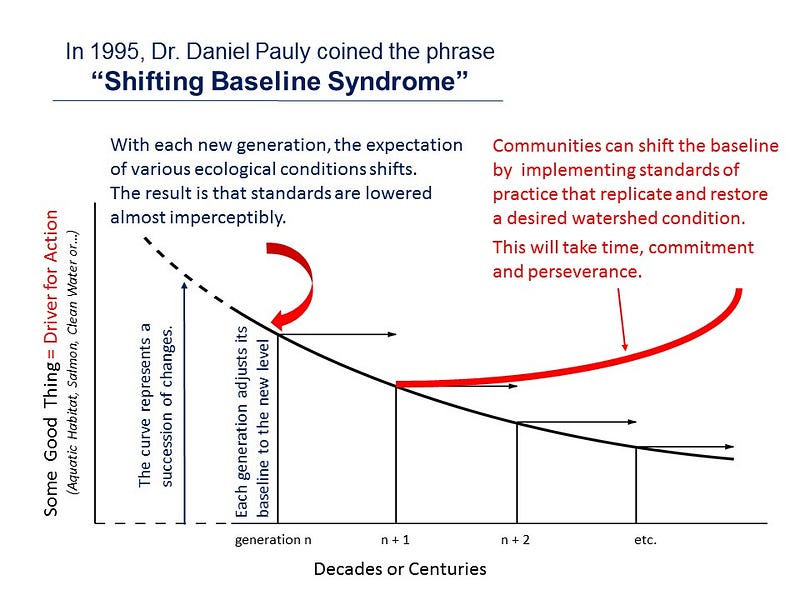Hunga Tonga: Eruption's Impact on Climate – What You Need to Know
Written on
The Hunga Tonga-Hunga Ha’apai volcano erupted dramatically on January 15, 2022, injecting a staggering 146 megatons of water vapor into the stratosphere. Initially, scientists raised concerns that this underwater explosion could be affecting atmospheric temperatures. Fast forward to the latest data, and the global average temperature from July 2023 to June 2024 stands at a record high of 1.68°C (3.02°F) above pre-industrial levels, with a 92% likelihood of surpassing 2023’s temperature records.
Despite the alarm, some skeptics attributed this rise to natural fluctuations, claiming that humanity remains less vulnerable to climate-related dangers than ever before. Conversely, others pointed fingers at the eruption as a catalyst for the intense heatwaves experienced globally, accusing climate activists of exaggerating the situation to support their narrative.
However, recent studies from the scientific community have led to a reassessment, dispelling earlier misconceptions and emphasizing the gravity of the ongoing climate crisis. Many who downplayed the eruption’s significance may need to reconsider their stance.
The Bigger Picture of Water Vapor
For many years, the Hunga Tonga-Hunga Ha’apai volcano lay dormant beneath the waves of the southern Pacific Ocean. Yet, in January 2022, it erupted with unprecedented force, surpassing even the infamous Krakatoa eruption of 1883 in terms of magnitude.
This explosive event generated energy comparable to hundreds of atomic bombs, causing a tsunami that reached as far as Peru and producing a sonic boom audible in Alaska. It propelled gas and ash 53 kilometers into the mesosphere, obscuring the skies over Tonga and igniting the most powerful lightning storm ever documented.

What distinguished this eruption was the massive volume of water vapor released — 146 megatons or approximately 40 billion gallons. As a greenhouse gas, water vapor contributes to climate warming. Volcanoes act as natural climate regulators, influencing both long-term and short-term climate variations. While they significantly impact the carbon cycle over millennia, their immediate eruptions can produce temporary climate effects.
Could this immense eruption be a hidden factor behind the record warmth of 2023 and the ongoing trends in 2024? The inquiry is certainly worth pursuing.
However, despite the enormity of 40 billion gallons, this quantity is relatively minuscule compared to the atmosphere’s capacity, which contains around 10 million megatons of water vapor. Consequently, the eruption's contribution was merely a 0.00146% increase, essentially negligible. Furthermore, much of the water vapor reached altitudes where its warming effects were minimal.

A Matter of Accountability
On the day of the Hunga Tonga eruption, humanity released an astonishing 100 megatons of CO2 into the atmosphere. The following day, while the volcano remained dormant, human activities continued unabated, adding another 100 megatons of CO2. This pattern persisted daily throughout the year, despite the volcano’s brief but intense eruption.
Thus, the critical question arises: what poses a more significant climate challenge, HT’s 146 megatons of water vapor or our daily emissions of 100 megatons of CO2?
Direct comparisons of the weights of these gases do not suffice to assess their climate impacts; one must consider their heat absorption capabilities and their respective placements in the atmosphere.
The positive radiative forcing from HT's water vapor is approximately 0.1 W/m². In contrast, human CO2 emissions require about 1,000 days to achieve similar radiative forcing. Typically, 1 W/m² leads to a 0.75°C increase in temperature, but reaching equilibrium takes time, indicating that any immediate warming from HT would be less than these figures suggest.
Additionally, HT emitted cooling aerosols that mitigated its warming effects. Thus, the net impact of the eruption was determined by the balance between these cooling aerosols and the warming water vapor. The findings were consistent and conclusive: HT’s eruption, one of the most powerful geological events in recent history, had virtually no impact on global average temperatures, likely resulting in a slight cooling of surface temperatures by approximately 0.0315 to 0.1118°C.
Feeling the Heat? Don’t Blame the Volcanoes
Volcanic eruptions are minor players in the broader context of climate change, overshadowed by human activities like fossil fuel combustion. In 2022, for instance, global CO2 emissions surged to over 36.8 Gt, putting HT’s 146 megatons of water vapor into perspective.
However, as Professor of Atmospheric Sciences Andrew Dessler remarked, the dramatic nature of the eruption has led some climate skeptics to argue that it accounts for the intense heat of the past summer.
While the planet undeniably continues to warm, evidenced by our trajectory toward exceeding 1.5°C for the second consecutive year, regions like Patagonia have experienced some of the coldest winters on record.
The Coldest Year of The Rest of Your Life
Given the overall warming trend, why is Patagonia experiencing frigid temperatures with frequent frosts, early snowfalls, and record-cold weather throughout various Argentinian provinces?
The answer lies in a phenomenon known as “shifting baseline syndrome,” wherein each generation accepts degraded conditions as the norm. While older individuals recall different climate realities, the youth may find the current conditions to be extreme.

We have normalized extreme heat, making typical or cold conditions seem extraordinary. A warming climate can still yield notably cold weather, and under certain conditions, local records can be shattered. Southern Australia has also experienced an unusually cold winter, with Tasmania recording its lowest July temperature on record.
Nonetheless, the focus should remain on averages. While isolated weather stations may report record cold temperatures, the global average is unlikely to set a new cold record anytime soon. Instead, we will encounter weather patterns more characteristic of a dangerously warming world, such as soaring temperatures in various regions leading to heat-related fatalities and health crises.
Earth's average temperature surpassing 1.5°C for an entire year is concerning, even for those who have not yet faced extreme heat. Individual experiences of climate — whether scorching or freezing — can vary widely.
June 2024 marked the 13th consecutive month of record warmth, and it is poised to become one of the hottest years on record, while paradoxically being among the coldest of your lifetime.
Be vocal. Thank you for your attentive reading and support!
Subscribe for immediate insights and join the 500+ Antarctic Sapiens community for weekly content.